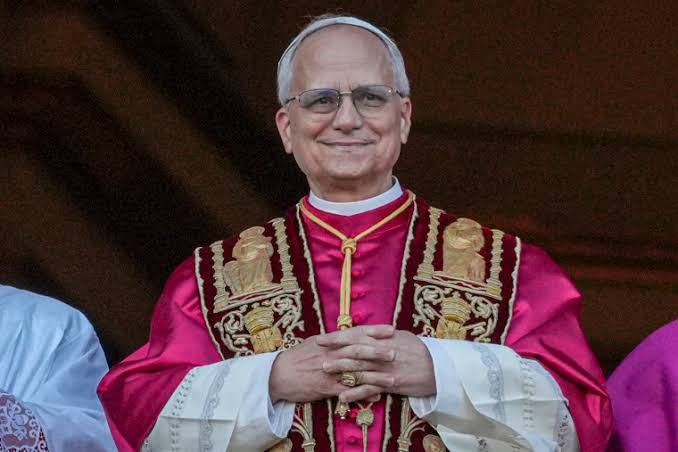
Vatican City — In a historic moment for the Catholic Church, Cardinal Robert Francis Prevost of the United States has been elected as the 267th pope and has taken the name Pope Leo XIV. The announcement came as white smoke rose from the Sistine Chapel chimney, signaling the end of the conclave and the beginning of a new papacy.
Pope Leo XIV, 69, appeared before thousands gathered in St. Peter’s Square and offered his first blessing as pontiff. “Peace be with you all,” he said emotionally, delivering his opening message with humility and clarity. He is the first pope from the United States, a milestone that marks a significant cultural and geopolitical shift within the Vatican’s history.
In his first public remarks, Pope Leo XIV paid tribute to his predecessor, the late Pope Francis, and outlined his vision for the future of the Catholic Church. “We have to seek together to be a missionary church. A church that builds bridges and dialogue,” he said, speaking in Italian. He urged Catholics around the world to embrace compassion, unity, and openness, emphasizing the importance of charity and mutual understanding in a polarized world.
A Leader with Global Roots
Originally from Chicago, Illinois, Pope Leo XIV brings a wealth of global and pastoral experience to the papacy. He spent over a decade in Trujillo, Peru, serving as a missionary and later as bishop of Chiclayo. His deep connections to Latin America, along with his Peruvian citizenship, helped broaden his appeal among the global college of cardinals.
Prevost is a member of the Augustinian order, which he once led as Prior General, gaining international leadership experience. Most recently, he served as prefect of the powerful Vatican Dicastery for Bishops, overseeing global bishop appointments. He also held the presidency of the Pontifical Commission for Latin America.
His election came just two days into the conclave, reflecting strong early support from the 133 cardinal electors — a swift outcome mirroring the conclaves that elected Francis and Benedict XVI.
A Missionary Vision for a Modern Church
Pope Leo XIV’s leadership style has been described as calm, balanced, and inclusive. Known for his ability to foster cooperation without authoritarianism, he has consistently emphasized the importance of dialogue, compassion, and missionary service.
“I still consider myself a missionary,” he said in a recent interview. “My vocation, like that of every Christian, is to proclaim the Gospel wherever one is.”
His papacy begins at a critical time. The Church continues to grapple with internal divisions over social teachings, clerical abuse scandals, and increasing secularism in many regions. He inherits a legacy shaped by Pope Francis, who shifted the Church’s focus toward social justice, humility, and care for the marginalized, often stepping away from contentious culture war issues.
As the Church prepares for the Jubilee Year in 2025, Pope Leo XIV will immediately face a demanding schedule of global events and spiritual reflections.
Upholding Reform and Facing Challenges
Observers say the new pope is expected to build upon the reforms of Pope Francis, including greater inclusion of women in Church leadership and an emphasis on the pastoral needs of a global, diverse flock.
Asked previously about women participating in Vatican governance, Prevost said: “There is real, genuine, and meaningful participation that they offer… when we discuss the dossiers of candidates.”
Still, Pope Leo XIV faces daunting challenges — including addressing the lingering wounds of the clerical sexual abuse crisis. While his predecessor took important steps, critics argue that accountability remains insufficient.
“There is still much to learn,” he previously said, acknowledging the ongoing need for transparency and systemic change.
A New Chapter
The election of an American pope was once considered unlikely, due to concerns over perceived geopolitical influence. However, Pope Leo XIV's long missionary service abroad appears to have reassured the conclave of his global perspective and pastoral priorities.
As the bells of St. Peter’s Basilica ring out and his name is proclaimed in churches around the world, Pope Leo XIV begins a new chapter in the Church’s history — one rooted in dialogue, justice, and a shared mission of faith.